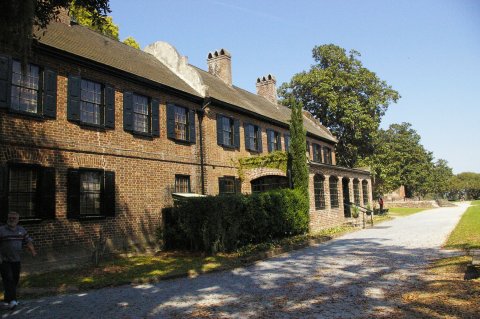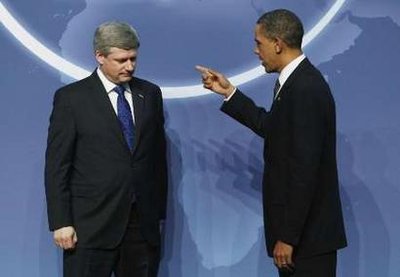Desmond Morris is a zoologist and the author of The Naked Ape. It is his idea that many of the otherwise inexplicable quirks we see in ourselves are leftovers, the result of our evolutionary heritage. Take that business with the bugs, for instance. Any time our higher cognitive processes get shut down, by panic, fatigue, or simply boredom, we humans have a tendency to revert to earlier, prehuman behavior.
Our early ancestors in Africa were arboreal troop-monkeys, living on a diet of fruit (to quote Yogi Bear, “Nut and berries! Nuts and berries! Yech!”) and insects. When you wander around the house, not particularly hungry, but looking for something to munch on idly, what you are most likely seeking unconsciously are bugs. Most of our most popular snack foods (Fiddle-Faddle comes to mind, and small pretzels) resemble and have the same “mouth feel” as bugs. You can take the monkey out of the trees, but you can’t take the tree monkey out of humanity.
L. Neil Smith, “Back to the Trees!”, Libertarian Enterprise, 2010-04-11
April 13, 2010
QotD: Bugs in the DNA
Expect to read more stories like this
Britain’s welfare support system was originally designed to provide temporary assistance — at barely-above-survival-levels — to workers and their families until the primary wage-earner could find new work. It wasn’t intended to provide this kind of support:
The Davey family’s £815-a-week state handouts pay for a four-bedroom home, top-of-the-range mod cons and two vehicles including a Mercedes people carrier.
Father-of-seven Peter gave up work because he could make more living on benefits.
Yet he and his wife Claire are still not happy with their lot.
With an eighth child on the way, they are demanding a bigger house, courtesy of the taxpayer.
Hard to blame ’em, really: if you can get substantially more through welfare support than you can by working, what’s the incentive to keep that job? Once upon a time, it was shame that would provide that extra spur to keep people in marginal economic circumstances from claiming welfare or other social benefits, as friends and neighbours would disdain them. These days? They’re probably envied by the next-door and down-the-street folks still dumb enough to get jobs.
At their semi on the Isle of Anglesey, the family have a 42in flatscreen television in the living room with Sky TV at £50 a month, a Wii games console, three Nintendo DS machines and a computer — not to mention four mobile phones.
With their income of more than £42,000 a year, they run an 11-seater minibus and the seven-seat automatic Mercedes.
But proof that material wealth does not translate directly into happiness, the Daveys still yearn for things they can’t yet have. But at least they’re not feeling burdened by feelings of guilt or shame:
She added: ‘I don’t feel bad about being subsidised by people who are working. I’m just working with the system that’s there.
‘If the government wants to give me money, I’m happy to take it. We get what we’re entitled to. I don’t put in anything because I don’t pay taxes, but if I could work I would.’
[. . .]
Mrs Davey, who spends £160 a week at Tesco, says she does not intend to stop at eight children. Her target is 14.
And she adds: ‘I’ve always wanted a big family — no one can tell me how many kids I can have whether I’m working or not.’
It’s true: in spite of all the other intrusions into everyday life by the British and European bureaucracies, there are still things they can’t tell you.
H/T to Jon (my former virtual landlord) for the link.
Another interesting use of Twitter
The brief log entries at RAF Duxford, a Royal Air Force airfield in Cambridgeshire, will move from the historical Operations Record Book to Twitter to mark the 70th anniversary of the Battle of Britain:
Every squadron, station and certain other units in the Royal Air Force had to complete an Operations Record Book, known as a Form 540.
Those for RAF Duxford and No 19 Squadron from 1940 show events such as patrols over Dunkirk, the problems encountered with early cannon-armed Spitfires, and the arrival of Czech pilots to form 310 Squadron.
They describe the sorties carried out by No 19 Squadron and pilots’ experiences during dogfights over south-east England.
A museum spokesman said: “This exciting new campaign will give a direct insight into Battle of Britain history, and will show how the campaign built in momentum throughout 1940.
Follow RAFDuxford1940 on Twitter.
It’s not quite “None of the above”, but it’s close
The UK Independence Party (UKIP) says Sod the lot:

The UK Independence party said “sod the lot” today as it launched its manifesto, telling voters it was time to ditch the three main parties in favour of an alternative proposing no cuts at all.
The party’s new poster features the faces of Gordon Brown, David Cameron and Nick Clegg alongside the slogan “sod the lot”.
Lord Pearson of Rannoch, Ukip’s leader, said it was time for a new politics and argued that leaving the EU would save up to £120bn a year — with no jobs or trade lost from Britain.
Pearson also revealed that his party would put up billboards urging voters to back Labour and Conservative candidates who were “committed” Eurosceptics as part of its strategy to mobilise support for a referendum on Britain’s role in Europe.
The choice on offer to British voters is Gordon Brown, Gordon Brown Lite, and Gordon Brown Extra Lite: that is, there’s very little to choose amongst ’em except for party colours.
Come the next election, it’d be tempting to steal the notion and put Harper, Ignatieff, and Layton on the poster . . . but we don’t have a viable Canadian Independence Party at the moment.
Surprise! Apple allows competing browser onto the iPhone
I guess even Apple has to trim their sails to the prevailing wind every now and again. Andrew Orlowski reviews the new iPhone implementation of Opera:
At last. Apple approved Opera’s Mini browser for the iPhone overnight, and in in a few hours it’s already attracted over 150 reviews. They’re not all positive, and not all accurate, but it’s an indication of how much interest there is in a better browser. While Safari was the jewel in the crown of the iPhone user interface, it hasn’t changed in three years. There are now 80 million iPhone and iPod Touches out in the wild, so some choice is long overdue.
What’s it like, then?
They said it was impossible . . .
Mini is fast, and Opera has sprung no surprises in the look and feel department. The font rendering and touch navigation — the mechanics of scrolling and zooming – aren’t quite as slick as we get with Safari, but they’re not far off. Mini also boasts also some very nice user-friendly features absent in Safari, such as saving web pages, searching inside a page, custom searches, and bookmark sync. And so it should . . .
Performance is the big draw, here. It’s always been the Mini’s signature feature: it was designed around speed and overcoming the obstacles to a good user experience on a mobile. Unlike the native version of Opera, Mini is really a lightweight document viewer, with the web page rendered on a proxy server, compressed, and sent down to the phone as a compact binary stream. The page is sent in large chunks, because TCP/IP’s chatty, bitty nature exacerbates the latencies that are a feature of 3G networks.
I’ll be downloading a copy as soon as I post this blog entry . . .
April 12, 2010
New “green” jobs to pay over $300K
Oh, wait. Sorry, that should be will cost over $300K:
The Government of Ontario recently signed a $7 billion no-bid contract with two Korean companies to supply wind and solar power to the province. Officials claim the backroom deal will boost “green” industry and job creation. But it’s hard to fathom how the additional employment can possibly be beneficial when each new manufacturing job will cost taxpayers a whopping $303,472. Nor do dramatic increases in electricity rates constitute much of a bargain.
Having failed on his pledge to shutter all coal-fired plants in the province by 2007, Ontario Premier Dalton McGuinty evidently has sought a grand green gesture that would appease the global warming alarmists. Executives of Samsung C&T Corp., in concert with the Korean Electric Power Corporation, were understandably eager to cooperate.
The agreement commits the province to buy wind and solar energy from the two companies at artificially high rates. It also extends to Samsung and Korean Power preferential access to the transmission network at the expense of independent wind power producers. As if either provision won’t adequately punish Ontarians, McGuinty also has pledged to override local zoning laws in locating new wind farms and transmission corridors.
Update, 12 February 2011: Even Premier McGuinty can only deny financial reality for so long:
Times of international turmoil are great moments for domestic governments to make important announcements they don’t want to be noticed. Especially if the announcement involves a sudden reversal in policy that could seriously embarrass the government.
So Friday afternoon was an ideal time for Ontario’s Liberal government to take a big chunk of its alternative energy program and chuck it overboard. Attention was riveted on Egypt, where spectacular events were unfolding. The perfect opportunity for Premier Dalton McGuinty to engineer yet another major reversal, while paying a minimal price among voters.
After years of touting wind projects as a critical piece of the alternative energy puzzle, the government let slip — very quietly — that offshore wind projects are no longer part of the game plan. Turns out there just isn’t enough scientific evidence that offshore wind projects do a lick of good, said Brad Duguid, the energy minister.
QotD: A new award
Nothing punctures a swollen ego so neatly as public mockery. Anti- awards like the Rotten Tomatoes and Golden Raspberry Awards for awful films, for example, perform a useful service. They keep celebrities humble and they give ordinary folks vicarious power to punish the inferior efforts of vain and stupid people who have come to believe they are special.
There should be just such an award for journalists who mangle the rules of composition. I am thinking in particular of opinion writers who are so determined to chivvy the reader into accepting a conclusion for which no evidence is available that they attempt to disguise their lack of acumen with really rotten imagery, similes, metaphors and symbolism.
I would call this anti-award the “Dowdy” in “honour” of Maureen Dowd, who would be named its inaugural recipient for creating the Worst Simile of the Year, a simile that binds together her April 11 New York Times column about the Catholic Church pedophile scandals, “Worlds Without Women.”
Barbara Kay, “Saudi Arabia is not a men’s club”, National Post, 2010-04-12
What is “the difference between the current system and slavery”?
The Whited Sepulchre looks at a new book by Michelle Alexander, The New Jim Crow: Mass Incarceration in The Age Of Colorblindness.
We have more prisoners than any other nation — 25% of the world’s total, despite having only 6% of the world’s population. According to the Michelle Alexander interview, if we were to go back to the 1970’s-era incarceration rates, we would have to release 4 out of 5 prisoners currently doing time.
We have so many prisoners that we’re having to privatize the cages that we’re using to lock up black kids. Ordinarily, Big Gubmint likes to run everything, but this particular growth industry is beyond them. Marijuana prohibition creates tens of thousands of jobs, public and private.
[. . .]
When the prisoners are released, many of them have to pay for part of the cost of their incarceration. They often have to pay for their own parole officers, counseling sessions, etc. and after talking to ex-cons for about 10 years, I’m of the opinion that most of these counselors couldn’t counsel a 3-year-old to go the potty.
If they fail to make these payments, they’re either locked up again, or their paychecks are garnished. After all, the private prison system has to be paid, right? [. . .] Now that you have all that info, can you explain the difference between the current system and slavery?
Do you understand why the prison lobby, in its public and private form, fights so hard to preserve the system?
Updating Romeo & Juliet for the YouTube/Twitter generation
The Guardian looks at a new Royal Shakespeare Company production of Romeo and Juliet:
But soft! What tweet through yonder iPhone breaks? It is the east, and @julietcap16 is the sun.
Actually, Juliet Capulet is probably offline at the moment: being only 16, she has to go to school even on her birthday, where to her indignation Twitter is banned. She’ll be back. And there’s a big party planned tonight that could change all their lives: does any of this sound at all familiar?
The Royal Shakespeare Company today joined with the cross-platform production firm Mudlark and Channel 4’s digital investment fund, 4iP, to launch Such Tweet Sorrow, a drama in real time and 4,000 tweets, very roughly based on Shakespeare’s Romeo and Juliet.
The Bard of Avon’s 1597 tragedy of flirty, street-fighting teenagers disastrously caught up in the double trauma of real love and their parents’ murderous small-town rivalries is already one of the most adapted of his works. It has been continuously reinvented as an opera, a ballet, a musical, a lesbian love story, a geriatric love story and even an ice show.
This time, Juliet is the daughter of a successful property developer. Her mother died in a car driven by the artist Montague; her father will no longer tolerate any of his works in the house, much less his son. Her brother Tybalt is well on his way to being expelled from his latest boarding school, and their older sister Jess, nicknamed Nurse, keeps well out of the way of their new stepmother.
I’m usually pretty conservative about “re-imagining” Shakespeare, but this sounds like an interesting performance.
Update, 13 April: Full story so far here.
April 10, 2010
Recoverin’
The border crossing was almost comically simple compared to past experiences: short line-ups, a pleasant customs official, straightforward questions, and then we were waved on through. We got home in time for dinner (Victor was glad to see us and the dogs were very happy to see us too).
My plan for today involve no driving whatsoever . . .
April 9, 2010
Returnin’
Didn’t find the time to do updates for the last couple of days . . . how did you survive without me? On the final leg of the journey today, north through West Virginia, Pennsylvania, and New York. Unless the border crossing is really bad, we should be home for dinner.
April 6, 2010
Recommended to your attention
A link from the latest Reason Online mailing led to this article, which is quite worth reading, if only for the pro-Canadian/anti-Soviet-Canuckistan comments:
The Hate-America-First outfit Heritage Foundation says the U.S. of A. may be a tad freer when it comes to economics than trans-fat-free Denmark, land of free speech for Islamo-dumbkopfs, but is less free than Canada, a country whose greatest export remains a former pitchman for Molson Export and one of
both ofthe stars of the original Star Trek series
And some of the amusing comments:
¢: I’ll assume they say Canada’s freer because it’s much, much whiter. White supremacists always rank Hong Kong at the top of things.
Ken Shultz: I don’t have the stats handy, but I think the notion of Canada being remarkably “white” is a bit of a misconception . . . especially if by “white” you mean some sort of uniform ethnicity.
From aboriginals and metis to the francophones in Quebec, and from the ethnic Chinese in Vancouver to the “Newfies”, I think Canada’s a lot more diverse than most Americans give them credit for.
It’s almost an American conceit, I guess, that when we look at the rest of the world, we don’t think it’s diverse unless more than 10% of the population is of African ancestry? [. . .]
dr duncan druhl: If you lived near Francophones, Francophiles, or just the French in general, trust me, you’d buy that they are a very distinct group. The ones in Canada are strange because they can’t stand the French because the France-French look down their nose at them for their strange dialect, which is probably as close to common street French from the 16th and 17th century as we’ll likely find anywhere.
creech: Canadians are too modest to start bragging about this. Canadian tax rates are such that the boss is starting to jigger intercompany pricing to move profit from the U.S. to Canada. Used to be the other way around.
Force shits upon Reason’s back: Canadians are too modest
Have you ever met a Canadian? They have many fine traits; modesty is not among them.
Boatin’
A few photos taken on our boat tour out into Charleston harbour, including a stop at Fort Sumter:

The (remains of) the fort, from the inner harbour, approaching the dock

Some of the recovered cannon from the Civil War sieges

The USS Yorktown, taken from the Aquarium on the other side of the river.
April 5, 2010
Still tourin’
With yesterday being Easter Sunday, we had no idea how busy things might be, or even what might be open. On the way into Charleston, we stopped at Middleton Place, which I expected to be an hour or so side-trip, but turned into the main activity of the day. It’s a huge property (6500 acres) that had been a rice plantation until the Civil War, when the property was destroyed by Union troops in 1865. The family could only afford to re-build one of the three main buildings, the south “flanker”. The unreconstructed remains of the other two buildings were thrown down in the 1886 earthquake.

The rebuilt south flanker, from the river side

The remains of the main house, after war and earthquake damage.




